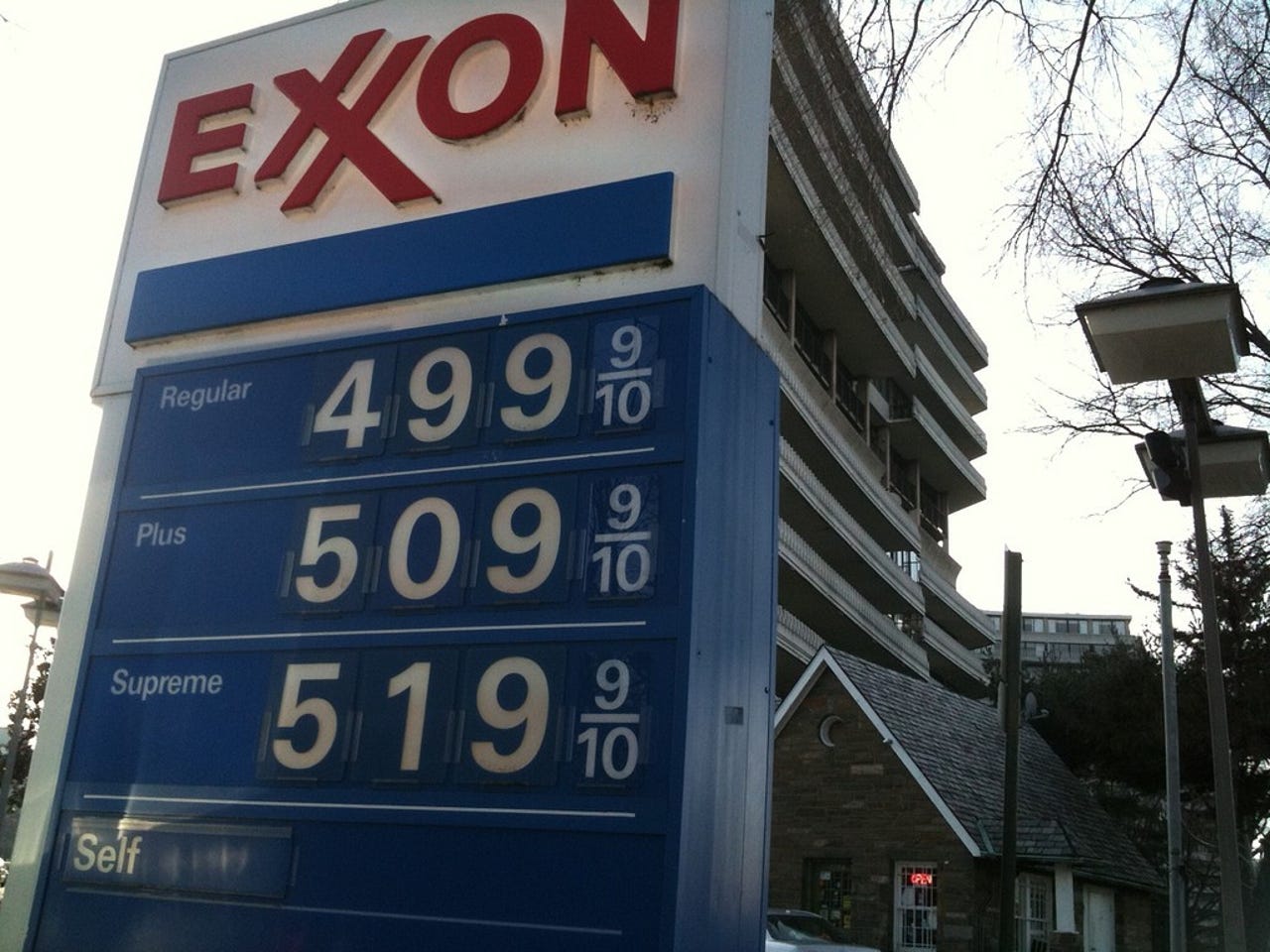Innovation
Major companies are stashing away money to pay for carbon pollution
Major corporations are willingly putting a price on carbon to gain a business advantage.


Some of the largest companies in United States have disclosed that they are planning ahead for a possible price on carbon.
According to a new report [pdf] from CDP, 29 large publicly-traded companies based or operating in the U.S., from a range of industries, have put a price on carbon -- from $6 to $60 per metric ton of CO2 -- for internal business planning.
"Many companies across the U.S. have come to recognize that there is a price associated with the carbon they emit and an economic opportunity in factoring a carbon price into their business model," said Tom Carnac, President of CDP North America. "Companies view the establishment of an internal carbon price as both an evaluation of risk and a business opportunity if they take steps to limit carbon pollution before others do."And it's not exactly a group of companies that would first come to mind as environmentally conscious. Among the companies that disclosed either their price on carbon or that they have a price for carbon, 27 are in the S&P 500 and the other two are foreign based oil giants BP and Royal Dutch Shell. U.S. oil companies Exxon Mobil and Chevron, IT companies like Microsoft and Google, retailers such as Walmart, and financial institutions like Wells Fargo are among major companies on the list.
As Walmart wrote in its disclosure statement, there are a couple good reasons for businesses to put a price on carbon -- even though there is currently no carbon tax in place in the United States -- as part of their long-term financial plans. "While this additional cost is primarily seen as a risk, Walmart’s early action on emissions reductions represents a competitive advantage over other retailers that have not performed such projects."
At The New York Times, Coral Davenport points out that companies focusing on a carbon-priced future is leading to changes in business strategy in some surprising places.
ExxonMobil, which last year was ranked by the Fortune 500 as the nation’s most profitable company, is representative of Big Oil’s slow evolution on climate change policy. A decade ago, the company was known for contributing to research organizations that questioned the science of climate change. In 2010, ExxonMobil purchased a company that produces natural gas, which creates less carbon pollution than oil or coal.
ExxonMobil is now the nation’s biggest natural gas producer, meaning that it will stand to profit in a future in which a price is placed on carbon emissions. Coal, which produces twice the carbon pollution of natural gas, would be a loser. Today, ExxonMobil openly acknowledges that carbon pollution from fossil fuels contributes to climate change.
This post was originally published on Smartplanet.com